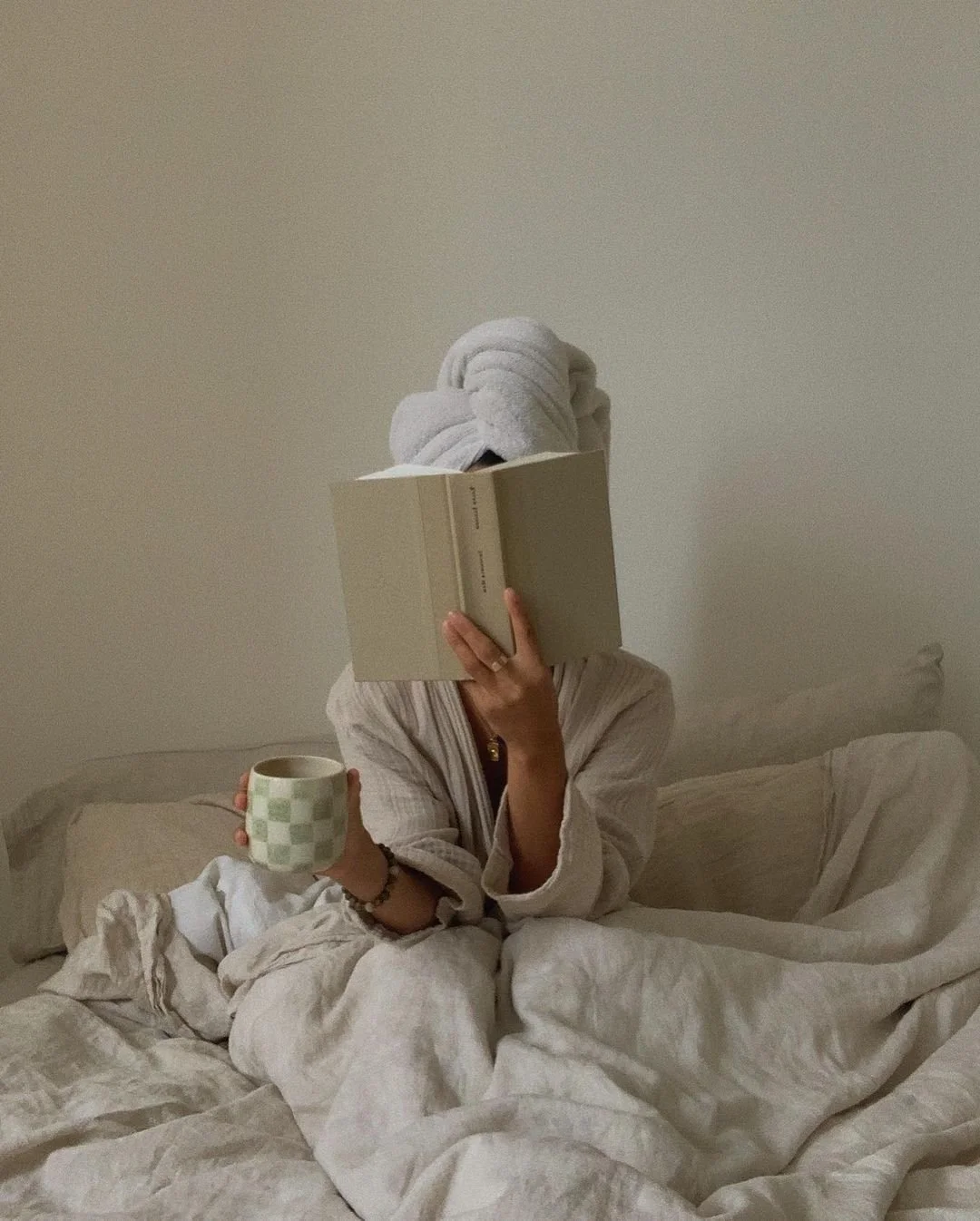Why Your 20s Trigger Anxiety: Expert Tips to Cope and Thrive
Your 20s are often romanticized as a decade of adventure, growth, and endless possibilities. But the reality? For many young adults, this life stage brings overwhelming anxiety, sleepless nights, and the constant feeling of falling behind.
If you're struggling with anxiety in your twenties, you're far from alone. Research shows that anxiety disorders peak during young adulthood, affecting nearly 1 in 3 people aged 18-29. Between managing student loans, launching careers, navigating relationships, and facing constant social media comparison, it's no wonder this decade feels so mentally taxing.
The encouraging news: anxiety in your 20s is manageable with the right strategies. This comprehensive guide explores why anxiety intensifies during this life stage and provides five evidence-based techniques to help you cope.
What Causes Anxiety in Your 20s? Understanding the Root Triggers
Major Life Transitions and Identity Formation
Your twenties mark the transition from adolescence to full adulthood, bringing significant life changes that trigger anxiety:
Career Pressure: Starting your first job, switching careers, or feeling uncertain about your professional path creates stress and self-doubt.
Living Independently: Moving out of your parents' home, managing a household, and handling adult responsibilities can feel overwhelming.
Educational Demands: Whether finishing college, pursuing graduate school, or balancing work with continuing education, academic pressure remains high.
Relationship Changes: Navigating romantic relationships, friendships shifting, and feeling pressure to find "the one" adds emotional complexity.
Financial Stress in Young Adulthood: Money anxiety is one of the leading causes of stress for people in their 20s: Managing student loan debt (the average borrower owes over $30,000), Living paycheck to paycheck while trying to build savings, Affording rent in expensive housing markets, Feeling behind peers who appear more financially stable.
Social Media and Comparison Culture: Instagram, TikTok, and LinkedIn create a highlight reel effect where everyone seems more successful, happier, and further ahead. This constant comparison fuels: Fear of missing out (FOMO), Imposter syndrome, Unrealistic expectations about career timelines and life milestones, Low self-esteem and inadequacy.
Brain Development and Emotional Regulation: Neuroscience reveals that the prefrontal cortex—responsible for decision-making, impulse control, and emotional regulation—doesn't fully mature until age 25-26. This ongoing brain development means: You may struggle more with managing intense emotions, Decision-making can feel harder and more anxiety-provoking, Stress responses may be more reactive.
How to Recognize Anxiety Symptoms in Your 20s
Anxiety doesn't always manifest as full-blown panic attacks. Young adults often experience subtle but persistent symptoms:
-
Constant overthinking and worry about the future
Racing thoughts that won't quiet down
Difficulty concentrating or making decisions
Feeling irritable, on edge, or easily frustrated
Persistent self-doubt and negative self-talk
-
Trouble falling or staying asleep
Muscle tension, especially in neck and shoulders
Racing heartbeat or heart palpitations
Shortness of breath or chest tightness
Digestive issues or stomach problems
Fatigue despite adequate rest
Important note: Occasional worry is normal, but when anxiety interferes with your daily life, work performance, or relationships, it's time to seek professional support.
5 Evidence-Based Strategies to Manage Anxiety in Your 20s
-
When anxiety strikes, grounding exercises help calm your nervous system by bringing you back to the present moment.
The 5-4-3-2-1 Method (takes 3-5 minutes):
Name 5 things you can see around you
Identify 4 things you can physically touch
Notice 3 sounds you can hear
Recognize 2 scents you can smell
Acknowledge 1 thing you can taste
This sensory awareness technique interrupts anxious thought patterns and activates your parasympathetic nervous system, helping you feel more grounded and calm.
Other effective grounding techniques:
Deep breathing: Inhale for 4 counts, hold for 4, exhale for 6
Progressive muscle relaxation
Cold water on your face or holding ice cubes
-
Consistency creates a sense of control that counteracts anxiety. Research shows that regular routines significantly reduce stress hormones.
Sleep Schedule: Aim for 7-9 hours nightly. Go to bed and wake up at consistent times, even on weekends. Poor sleep amplifies anxiety symptoms.
Balanced Nutrition: Eating regular meals stabilizes blood sugar, which directly impacts mood and anxiety levels. Limit caffeine and alcohol, both of which can worsen anxiety.
Daily Movement: Exercise is one of the most effective natural anxiety treatments. Even 10-15 minutes of walking, yoga, or dancing releases endorphins and reduces stress hormones like cortisol.
Morning Routine: Starting your day with intentional activities (stretching, journaling, or a healthy breakfast) sets a positive tone and reduces morning anxiety.
-
Social media often exacerbates anxiety through comparison and information overload. Taking control of your digital consumption is essential.
Practical boundaries to try:
Set daily screen time limits (aim for under 2 hours of social media)
Create "tech-free hours," especially before bed and first thing in the morning
Unfollow accounts that trigger comparison or negative feelings
Turn off non-essential notifications
Use apps like Freedom or Screen Time to track and limit usage
Designate one day per week as a "digital detox day"
Studies show that reducing social media use to 30 minutes per day significantly decreases feelings of loneliness, depression, and anxiety.
-
Writing externalizes worries, making them feel more manageable and less overwhelming. Journaling helps you identify patterns and triggers over time.
Effective journaling prompts for anxiety:
"What am I worried about right now, and what can I actually control?"
"What evidence do I have that contradicts my anxious thoughts?"
"What would I tell a friend who was feeling this way?"
"What am I grateful for today?" (gratitude reduces anxiety)
Types of journaling to try:
Stream of consciousness (write whatever comes to mind)
Worry journaling (set aside 15 minutes to write all worries, then close the notebook)
Bullet journaling to track mood patterns and anxiety triggers
-
Mindfulness teaches you to observe anxious thoughts without judgment, reducing their power over you. Regular meditation practice rewires the brain to respond more calmly to stress.
Getting started with mindfulness:
Begin with just 5 minutes daily using guided meditation apps:
Headspace: Great for beginners with structured courses
Calm: Offers sleep stories and breathing exercises
Insight Timer: Free with thousands of guided meditations
Ten Percent Happier: Practical, no-nonsense approach
Simple mindfulness practices:
Mindful breathing: Focus solely on your breath for 2-3 minutes
Body scan meditation: Notice sensations in each part of your body
Mindful walking: Pay attention to each step and your surroundings
Eating meditation: Fully experience the taste, texture, and smell of food
Research shows that 8 weeks of regular mindfulness practice can reduce anxiety by up to 40%.
Building Your Anxiety Support System
You don't have to manage anxiety alone. Connection and support are crucial for mental health.
Talk About Your Anxiety
Sharing how you feel with trusted friends or family members often brings relief and perspective. Vulnerability strengthens relationships and helps you feel less isolated.
Find Community Support
Join online or in-person support groups for young adults with anxiety
Connect with others through apps like Meetup or local community centers
Consider peer support through organizations like NAMI or the Anxiety and Depression Association of America (ADAA)
Seek Professional Mental Health Support
At Restoring Hope Counseling our compassionate team of therapists specialize in helping people just like you navigate this anxiety.
Reframing Your 20s: Letting Go of Unrealistic Expectations
Much of the anxiety in your twenties comes from believing you should have everything figured out. The truth? Your 20s are meant to be messy, confusing, and full of trial and error.
Shift your mindset:
From: "I should have my career figured out by now"
To: "I'm exploring and learning what fits me"From: "Everyone else is ahead of me"
To: "I'm on my own timeline, and comparison isn't helpful"From: "Making mistakes means I'm failing"
To: "Mistakes are how I learn and grow"From: "I need to achieve big milestones to be successful"
To: "Small progress and everyday wins matter just as much"
Your 20s are about experimentation, self-discovery, and building foundations—not having all the answers.
Key Takeaways: Managing Anxiety in Your 20s
Anxiety in your 20s is common and valid: Major life transitions, financial stress, brain development, and social comparison all contribute to heightened anxiety during young adulthood.
Recognize the signs: Mental symptoms (overthinking, difficulty concentrating) and physical symptoms (sleep problems, muscle tension, racing heart) indicate when anxiety needs attention.
Try evidence-based coping strategies: Grounding techniques, healthy routines, digital boundaries, journaling, and mindfulness all effectively reduce anxiety symptoms.
Build a support network: Talk to trusted people, join support groups, and consider professional therapy for personalized guidance.
Reframe expectations: Your 20s don't need to be perfect or perfectly mapped out. Growth, mistakes, and uncertainty are normal parts of this decade.
Take Action Today: Your Next Step
Coping with anxiety is a skill that improves with practice. You don't need to implement everything at once.
Choose one strategy from this guide and commit to trying it for the next week:
Practice the 5-4-3-2-1 grounding technique when anxiety appears
Set a social media time limit on your phone
Write in a journal for 10 minutes before bed
Download a meditation app and try one 5-minute session
Reach out to one trusted person and share how you're feeling
Small, consistent actions create meaningful change. Your future self will thank you for taking the first step today.
Written by: Laura Nava, LPC-Associate
Supervised by Celeste Osborne LPC-S.
I understand you, and I can help you become your ideal self so that you can progress in life how you want.
Lack of motivation, procrastination, low self-esteem, anxiety, depression, and stress can prevent us from becoming the person who we aspire to be. With the correct tools and guidance, you will overcome challenges or barriers that get in the way of your goals. When you become an empowered individual and the narrator of your own life, you will be full of motivation, productivity, your self-esteem, and relationships will improve, goals will be met, and most importantly, you will learn to love and care for yourself. I provide counseling in both English and Spanish.



